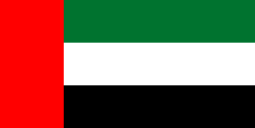Water scarcity is a growing concern worldwide, and the UAE is no exception. With limited freshwater resources and increasing water demand due to urbanization and industrialization, sustainable water management practices have become essential. Greywater recycling is one such innovative solution that offers an effective way to conserve water while supporting environmental sustainability.
In this blog, we will explore grey water, the concept of grey water recycling, the benefits of using a grey water recycling system, and its potential impact on water conservation efforts in the UAE.
What is Grey Water?
Grey water is the wastewater generated from household and commercial activities such as bathing, washing dishes, and laundry. Unlike black water, which includes sewage and requires intensive treatment, grey water contains minimal contaminants and is relatively easier to recycle and reuse. Common sources of grey water include sinks, showers, and washing machines.
By identifying greywater as a valuable resource, the demand for freshwater can be reduced, alleviating pressure on existing water treatment infrastructure. Recycling grey water can minimize wastage and create a more sustainable approach to water usage in the UAE.
What is Grey Water Recycling?
Greywater recycling is collecting, treating, and reusing grey water for non-potable applications, such as irrigation, landscaping, and flushing toilets. A greywater recycling system typically includes filtration and disinfection processes to remove impurities and make the water safe for reuse.
In the UAE, where water conservation is a top priority, greywater recycling systems are gaining popularity in residential, commercial, and industrial settings. By integrating these systems into existing water infrastructure, the UAE can reduce its reliance on desalinated water and groundwater resources, both energy-intensive and environmentally taxing.
Components of a Grey Water Recycling System
A grey water recycling system includes several key components designed to ensure efficient treatment and reuse of grey water:
- Collection System: Grey water is collected from designated sources such as showers, sinks, and washing machines. This step involves separating grey water from black water to ensure proper treatment.
- Filtration Unit: The collected grey water passes through a filtration unit to remove debris, solids, and impurities. This step prepares the water for further treatment.
- Disinfection System: The filtered grey water is treated with disinfection methods such as UV light, chlorination, or ozone to eliminate bacteria and pathogens, ensuring safety for reuse.
- Storage Tank: Treated grey water is stored in tanks for future use. These tanks are designed to maintain water quality and prevent contamination.
- Distribution System: Treated grey water is pumped to specific applications such as irrigation systems, toilet flushing, or cooling towers, ensuring efficient reuse.
Benefits of Grey Water Recycling in the UAE
Grey water recycling offers numerous benefits that align with the UAE’s sustainability goals and water conservation efforts:
- Water Conservation: Recycling greywater significantly reduces the demand for freshwater by reusing water for non-potable purposes. This helps conserve valuable freshwater resources for drinking and other essential uses.
- Reduced Environmental Impact: Greywater recycling minimizes pollution and protects natural ecosystems by decreasing the volume of wastewater discharged into the environment.
- Cost Savings: Implementing a greywater recycling system can lower water bills for households, businesses, and industries by reducing the need for freshwater supply.
- Sustainability in Urban Development: Greywater recycling systems can be integrated into green building designs, contributing to the UAE’s vision of sustainable urban development.
- Improved Water Security: Greywater recycling enhances water security in a region where water scarcity is a critical issue by reducing reliance on desalinated water and groundwater.
- Support for Agriculture and Landscaping: Treated grey water is ideal for irrigation and landscaping, promoting greenery in urban areas without depleting freshwater resources.
Grey Water Recycling in the UAE: Current Trends and Applications
In recent years, the UAE has made significant strides in promoting greywater recycling as part of its broader sustainability initiatives. Grey water recycling systems are increasingly adopted in residential communities, hotels, commercial buildings, and industrial facilities.
- Residential Communities: Many new housing developments in the UAE include grey water recycling systems to irrigate gardens and flush toilets, reducing water consumption, and fostering a culture of sustainability.
- Hospitality Sector: Hotels and resorts use greywater recycling systems to maintain landscapes, operate cooling systems, and conserve water in laundry operations.
- Industrial Facilities: Industries in the UAE use treated grey water for processes like cooling and cleaning, helping to minimize freshwater usage and reduce operational costs.
- Public Infrastructure: Some municipalities have integrated greywater recycling systems into public facilities and parks, promoting water reuse on a larger scale.
Pioneering Water Recycling Solutions: Ion Exchange’s Role in Sustainability
Ion Exchange offers comprehensive water management solutions focusing on wastewater recycling, product recovery, and waste minimization. Their integrated systems employ cutting-edge, energy-efficient, cost-effective technologies such as advanced membrane processes, oxidation, and evaporation. These innovations enable the conservation of water by recycling wastewater and recovering valuable products for reuse. They aim for zero liquid discharge and provide a strong return on investment while safeguarding the environment.
Ion Exchange selects the most suitable technologies and treatment schemes through meticulous bench-scale and pilot plant studies and detailed site surveys. These solutions are tailored for various industries, including power plants, fertilizers, electronics, electroplating, textiles, chemicals, food and beverages, pulp and paper, pharmaceuticals, and automobiles, ensuring optimal recovery and reuse of water and valuable products.
The INDION TADOX process represents a significant advancement in treating complex industrial and municipal wastewater. This innovative solution offers flexibility by allowing integration at the secondary treatment stage, either before membrane processes or during the pre-biological stage. Employing novel approaches, INDION TADOX minimizes chemical usage, reduces sludge production, prevents secondary pollution, and decreases the load on downstream tertiary treatments. As a retrofittable and integrated solution, it ensures reduced treatment times and delivers highly resource and energy-efficient processing, leading to 30-40% reductions in both CAPEX and OPEX. Key advantages include high efficiency, excellent treated water quality, a clean and green approach, and a modular, integrated design.
Advanced Oxidation Systems (AOPs) encompass a range of chemical treatment processes designed to remove organic and, at times, inorganic materials from water and wastewater through oxidation reactions with hydroxyl radicals (OH). These processes often utilize ozone (O3), hydrogen peroxide (H2O2), and UV light. A specific type of AOP is in situ chemical oxidation. The advantages of AOPs include their ability to effectively eliminate organic compounds in the aqueous phase rather than transferring pollutants to another phase. Additionally, some AOP designs can achieve disinfection, making them a comprehensive solution for various water quality issues. Since the complete reduction product of hydroxyl radicals is water (H2O), AOPs theoretically do not introduce new hazardous substances into the water.
HYDRAMEM, developed by Ion Exchange, showcases the best in modern membrane technology. With superior quality and decades of manufacturing expertise, HYDRAMEM is preferred for industrial, institutional, and domestic applications. Our advanced membrane range includes Reverse Osmosis (RO), Ultrafiltration (UF), and Nanofiltration (NF), ensuring high performance and reliability across various uses.
Conclusion
Greywater recycling is an essential component of sustainable water management in the UAE. By understanding what greywater is and adopting greywater recycling systems, the nation can conserve freshwater resources, reduce environmental impact, and enhance water security.
As the UAE continues to lead by example in sustainability, integrating greywater recycling systems into urban development, industry, and public infrastructure can significantly address water scarcity challenges.


